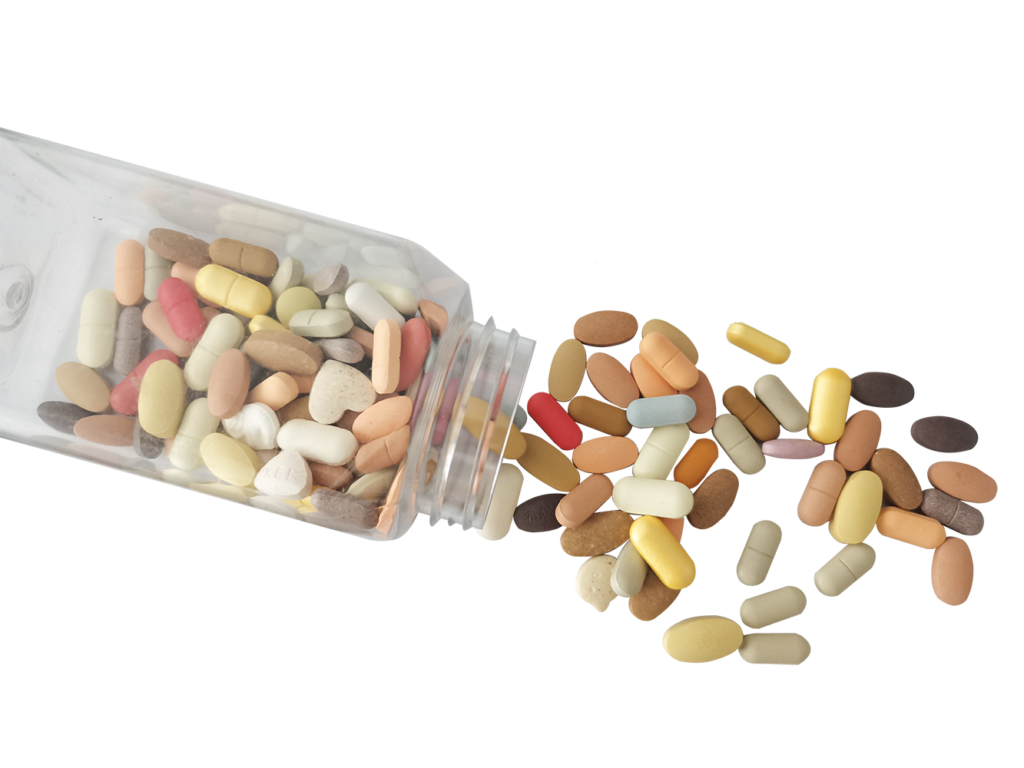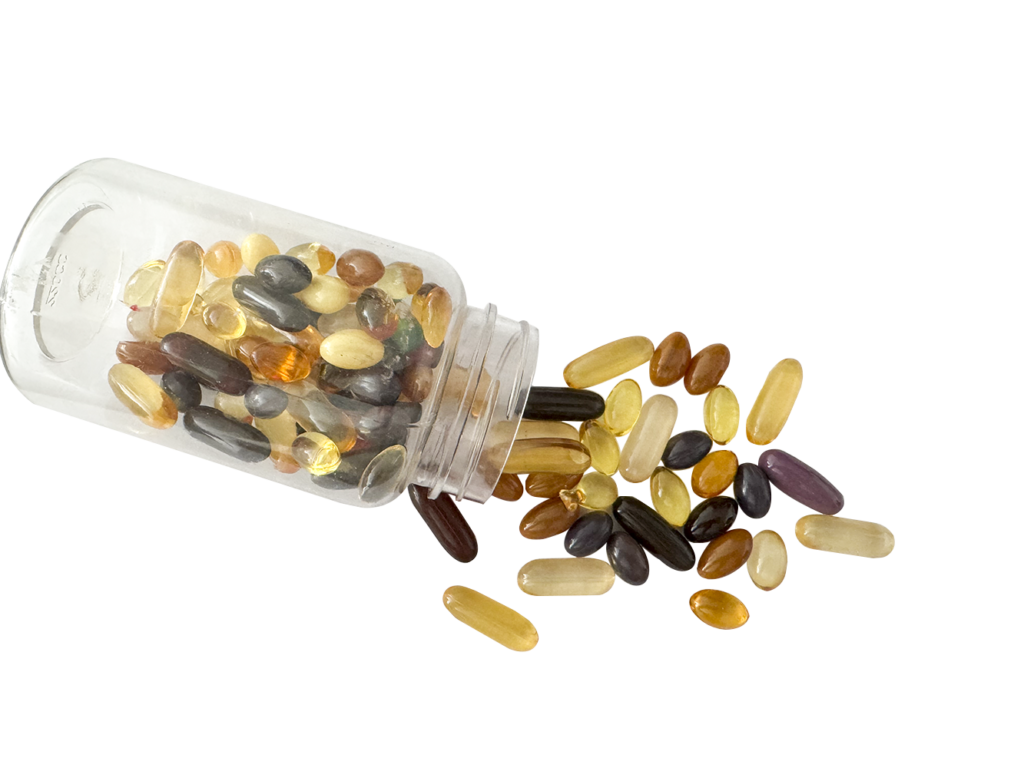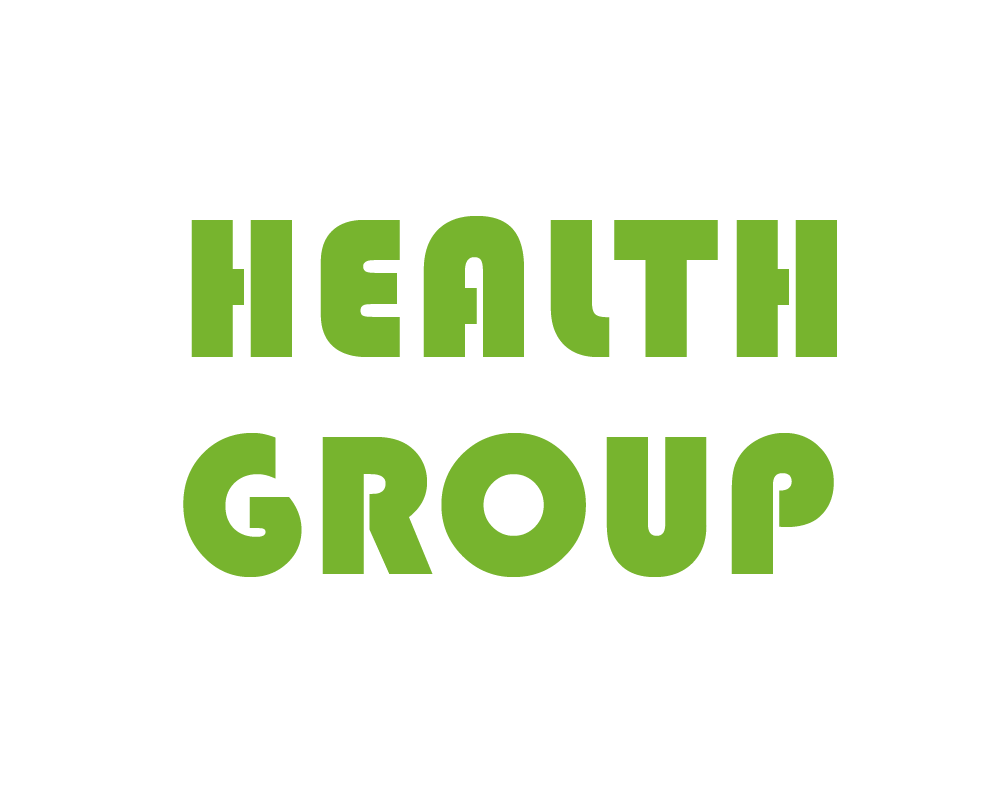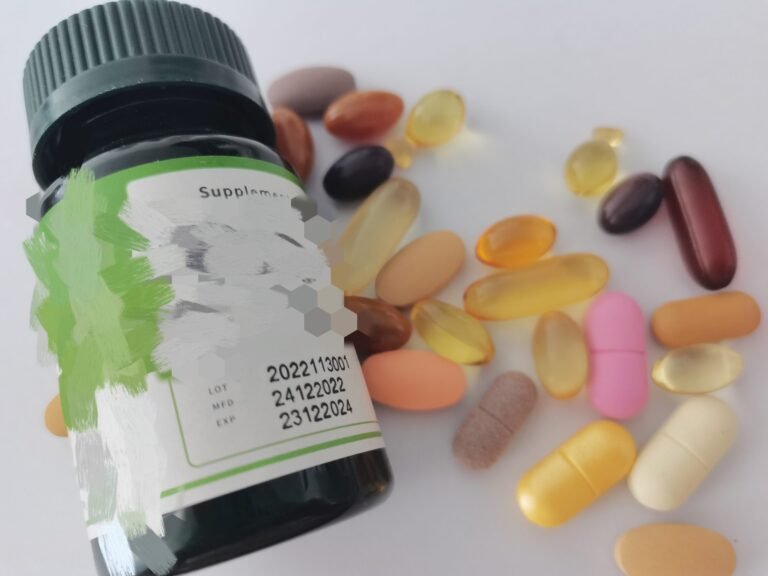In the fast-paced world of dietary supplements, choosing the right dosage form is crucial for the success of your brand. Tablets and capsules are two popular options, Either form can provide the same medicine or nutrients to your body via your digestive system, each with its own set of advantages and considerations.

As an dietary supplement brand owner, you might be comparing tablets with capsules as the dose form for your product.Aside from the obvious physical differences, there are 3 key considerations you must account for when it comes to these two tried and true delivery methods:
- Consumer Preference
- Digestion & Absorption
- Nutraceutical Dosage
Let’s delve into the debate and explore which one is the best fit for your supplement brand.
Section 1: Understanding Tablets and Capsules
Tablet Properties

Tablets and capsules are both convenient and effective ways to deliver dietary supplements to consumers. Tablets are typically compressed powders or granules, while capsules consist of encapsulated powder or liquid within a gelatin or vegetarian shell.
A tablet is a pill that is entirely composed of medication. It’s made by compressing powdered medicine into a solid, smooth pill. Tablet medicines can be a variety of shapes, including round oblong (caplets), and colors.
Tablets must be hard enough to stay together in their packaging but soft enough to dissolve during digestion. In most cases, tablets also contain inactive ingredients or excipients whose purpose it is to bind all of the ingredients in the tablet together.
Excipients may also be used to improve other characteristics of the tablet, such as disintegration time, appearance or even taste/flavor (in the case of chewable tablets). Color coatings can also be used to change the tablets appearance, and special coating that prevents them from breaking down in the stomach and only dissolve after entering the small intestine, when this is desirable.
Generally speaking, tablets may be better in terms of consistent absorption. However, one of the main downsides to tablets is that their hardness and some of the larger sizes can be difficult to swallow for some people.
Compared to liquids, tablets have much less flexible dosing options. However, unlike capsules, tablets can be easily divided in half by the consumer. These are important features to consider when thinking about capsule vs. tablets.
Capsule Properties
There are two main types of capsules: Hard Capsules and Soft Capsules.
A capsule is another type of pill, which contains medication inside an outer shell. Capsules contain either powdered or liquid medication, though both versions work the same way. The outer shell breaks down in the digestive tract when it enters your digestive tract, then your liver processes the active ingredients and passes them to your bloodstream.
Hard Capsules are the most common form of capsules, which comprise two interlocking pieces of a rigid shell that fit together and can be either plant-based or gelatin-based, encapsulating your ingredients.

Soft Capsules: Usually referred to as softgels, these capsules are mostly colorless and vary in shape as they have wider options. Softgels most commonly consists of either a gelatin-based or vegetable-based shell that surrounds your liquid formulation. They can be colored and customized to reflect your brand and formulation.

Capsule shells can be clear or opaque, and there are multiple color choices. There are other important factors to think about with capsule properties. For example, the weight of the ingredients, the size of the finished capsule and the diameter are a few issues to consider.
Section 2: Advantages of Tablets
- Supplements in tablet form tend to have a longer shelf life.
- Some tablets are designed to be chewed, making ingestion easier.
- Custom size, shape, and appearance
- The same size tablet can be more potent and contain more of the active ingredient than a capsule of equivalent size.
- Tablets can easily be cut into halves or thirds to provide greater control over your dosage or to distribute the dosage over the course of a day.
- Controlled release agents used in tablets can aid specific nutrient uptake
- Lower cost – It may depend on the active ingredient or medication but tablets are generally less costly to manufacture and cheaper to purchase.
- Different delivery – Tablets can be made for quick release, delayed-release, or extended-release.
- Better for plant-based diets – Tablets don’t require animal gelatin coatings as they’re simply pressed together.
Section 3: Advantages of Capsules
- Capsules provide benefits such as faster dissolution.
- They are also suitable for delivering sensitive or liquid ingredients and appeal to consumers seeking vegetarian or vegan options.
- Often easier to swallow
- Easily opened
- Reduced stomach irritation
- Gelatin and vegetarian enclosure options
- There are more options for combining ingredients.
- They can be sealed to keep oxygen from coming into contact with the contents.
- High-quality capsules do not leave an unpleasant aftertaste.
- Better absorption – Capsules can have a higher bioavailability, meaning more of the medication enters your bloodstream, which makes them slightly more effective than tablets on average.
- Fast Acting – Capsules tend to break down and release ingredients into the bloodstream faster than tablets.
Section 4: Manufacturing Considerations
When deciding between tablets and capsules, manufacturers must consider factors such as ingredient compatibility, production efficiency, and equipment requirements.
Section 5: Market Trends and Industry Insights
Market trends reveal an increasing demand for both tablets and capsules within the dietary supplement industry. To remain competitive, brands are diversifying their offerings to accommodate varied consumer preferences. Despite its significance, the target market is often overlooked by supplement companies. Understanding your target demographic is paramount and involves assessing the following key aspects:
- Perception of supplement’s value.
- Age range of users.
- Appearance preferences tailored to the age range.
- Abilities of the target market.
- When developing a supplement targeted at a specific demographic, it’s crucial to determine the preferred delivery form.
After identifying the age range and appearance preferences of users, it’s essential to consider their abilities. While capsules are generally believed to be easier to swallow than tablets, this may not hold true if the capsule size is too large. This consideration is particularly significant for children, older adults, and individuals with swallowing difficulties due to medical reasons such as surgery, injury, or disease.
Section 6: Making the Decision for Your Brand
Ultimately, the decision between tablets and capsules should align with your supplement brand’s goals, target market preferences, and production capabilities. Consider conducting market research, consulting with industry experts, and conducting product testing to determine the best fit for your brand.
If your ingredients are inert to the additives present in capsule coatings and are absorbed directly into the bloodstream, capsules are a good idea. If you discover that it takes a larger capsule to contain a single dose, you may be more likely to choose an average-sized tablet if you are concerned about swallowing abilities of buyers. The alternative would be to divide it into two capsules. In this example, the tablet would be the better value for your budget.

Both capsules and tablets each have their merits, but our customers can rest assured that the Quality and Research and Development departments at Shandong Health Biotech are on top of the latest technologies that provide you with the highest quality in both delivery systems.



